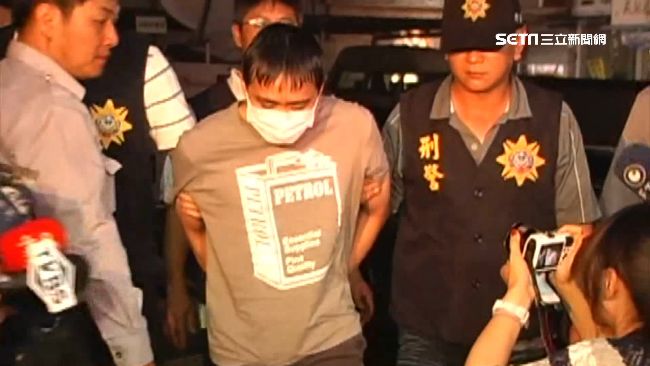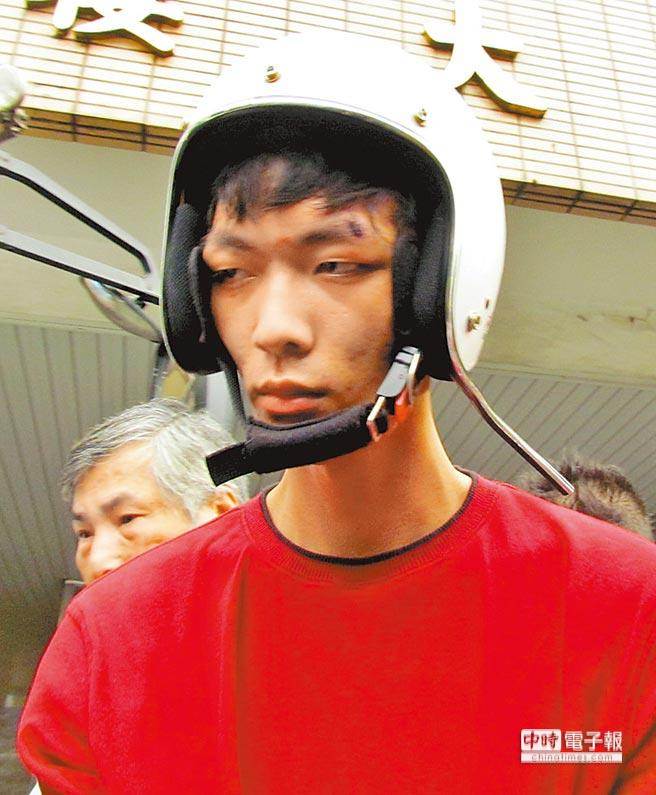by Brian Hioe
語言:
English
Photo Credit: 寺人孟子/WikiCommons/CC
MAKE NO MISTAKE: The execution of a 39-year-old man in Kaohsiung last Friday is a political killing. In all probability, the Tsai administration went ahead with the execution as a way to score political points for the DPP in the lead-up to 2018 local elections and in order to counter criticisms that it has been lax on violent crime.
Lee Hung-chi, 39, was executed by firing squad last Friday. Lee was on death row for stabbing his ex-wife to death in 2014 and attempting suicide with their eldest daughter, drugging his daughter with sleeping pills while attempting to asphyxiate himself by burning charcoal in his car. Although Lee was found and rescued, his eldest daughter died a month later while hospitalized. Lee seemed to have been motivated by anger against his wife for divorcing her and had a history of domestic violence; Lee also reportedly vowed revenge against his wife’s family in court.
 Lee Hung-chi (center). Photo credit: SET
Lee Hung-chi (center). Photo credit: SET
Lee’s execution is first execution which has taken place under the Tsai administration in its two years in office. As such, Lee’s execution was the first execution to take place in two years, the last execution in Taiwan taking place during the Ma administration’s final days in office. The Ma administration ordered the sudden execution of Cheng Chieh, 23, who had stabbed 4 to death and injured 24 in a May 2014 subway stabbing incident.
Cheng’s execution was the shortest period of time between a crime committed and execution in the post-martial law period, at 23 months. The execution also took place only nineteen days after sentencing, which was quite unusual, leading to accusations that the Ma administration executed Cheng Chieh on its way out of office in order to go out on a high note.
Namely, despite strong opposition to the death penalty from youth activists, the death penalty is popularly supported in Taiwan, with the view that it is a deterrent to violent crime. Presidential administrations are frequently accused of using the death penalty to try and prop up their popularity because this will be seen as being tough on crime. Presidential administrations have also been accused of using the death penalty to distract from other political events, such as with a series of executions which occurred in the immediate aftermath of the 2014 Sunflower Movement.
 Cheng Chieh at the time of his arrest. Photo credit: China Times
Cheng Chieh at the time of his arrest. Photo credit: China Times
In all probability, this is why the Tsai administration decided to execute Lee Hung-chi, one of 42 prisoners on death row. Namely, a series of murder incidents involving dismemberment of the body after death have proven shocking to Taiwanese society in the past several months, and the Tsai administration has faced criticisms from society that these murders are because the Tsai administration has been lax on crime. As the majority of these cases were murders of women by men, it seems quite likely that Lee was chosen for execution because the crime he committed resembled these murder incidents in the past few months despite taking place in 2014, and the Tsai administration faced calls to use the death penalty to prevent future incidents.
The Tsai administration would be following the pattern of its predecessor, the Ma administration, which reinstated the death penalty in 2010 after an unofficial moratorium on the death penalty. Apart from executing Cheng Chieh shortly before it left office, the Ma administration carrying out a series of executions shortly after the Cheng Chieh subway stabbing as a way of pacifying society.
In particular, Taiwanese civil society groups opposed to the death penalty were outraged by the fact that the Tsai administration gave little advance warning of its plans to execute Lee in order to minimize protest or legal actions that civil society groups could take to try and halt the execution. This also continues a Ma era tactic.
 Rally by civil society groups against Lee’s execution last Friday. Photo credit: 人權公約施行監督聯盟 Covenants Watch/Facebook
Rally by civil society groups against Lee’s execution last Friday. Photo credit: 人權公約施行監督聯盟 Covenants Watch/Facebook
As pointed out by the European Union in an official condemnation and by Taiwanese civil society groups, as the evidence stands, the use of the death penalty does not prove a deterrent for violent crime in Taiwan. In fact, there are cases of individuals seeking methods of suicide that deliberately commit violent crimes with the intent of being executed. It also proves a problem in Taiwan that the death penalty is sometimes misapplied, with cases in which confessions were secured by police through force, in which the mentally ill are put on death row, or in which both the defendant and prosecution agree that the defendant is not guilty, but lawyers retained by the family of the victim are intent on pursuing charges.
Unfortunately, the majority of social attitudes towards the death penalty in Taiwan being what they are, one does not expect the death penalty to be phased out anytime soon in Taiwan. And the Tsai administration, which currently seeks the death penalty for some of the culprits of recent dismemberment incidents, has made clear that it is fully willing to use the death penalty as a political tool. It will continue to be an uphill struggle for civil society groups against continued use of the death penalty in Taiwan.

